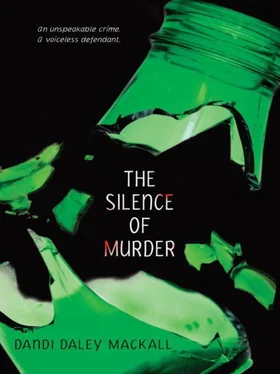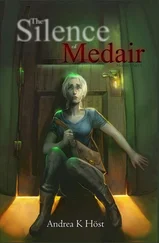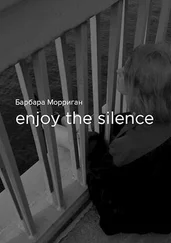Dandi Mackall - The silence of murder
Здесь есть возможность читать онлайн «Dandi Mackall - The silence of murder» весь текст электронной книги совершенно бесплатно (целиком полную версию без сокращений). В некоторых случаях можно слушать аудио, скачать через торрент в формате fb2 и присутствует краткое содержание. Жанр: Триллер, на английском языке. Описание произведения, (предисловие) а так же отзывы посетителей доступны на портале библиотеки ЛибКат.
- Название:The silence of murder
- Автор:
- Жанр:
- Год:неизвестен
- ISBN:нет данных
- Рейтинг книги:3 / 5. Голосов: 1
-
Избранное:Добавить в избранное
- Отзывы:
-
Ваша оценка:
- 60
- 1
- 2
- 3
- 4
- 5
The silence of murder: краткое содержание, описание и аннотация
Предлагаем к чтению аннотацию, описание, краткое содержание или предисловие (зависит от того, что написал сам автор книги «The silence of murder»). Если вы не нашли необходимую информацию о книге — напишите в комментариях, мы постараемся отыскать её.
The silence of murder — читать онлайн бесплатно полную книгу (весь текст) целиком
Ниже представлен текст книги, разбитый по страницам. Система сохранения места последней прочитанной страницы, позволяет с удобством читать онлайн бесплатно книгу «The silence of murder», без необходимости каждый раз заново искать на чём Вы остановились. Поставьте закладку, и сможете в любой момент перейти на страницу, на которой закончили чтение.
Интервал:
Закладка:
“You’ll make a good dad,” I tell him.
“You think so?” he asks, like it matters what I think.
“I do.”
We go at it for another thirty minutes. Raymond does his best to prepare me for cross-examination. But when it’s time to go, I’m pretty sure I’m a whole lot less prepared than your average Boy Scout.
Raymond follows me to the door, where I put on my shoes. It’s raining pretty good now. “Isn’t Rita here yet?” he asks.
“I’m meeting her.” I don’t add that I’ll be meeting her at home, though, and not out on the street.
Raymond frowns. “Are you sure you don’t need me to give you a lift?” He tosses a nervous glance down the hall. I can tell he’s worried about his wife.
“Nope. But thanks.”
“Here. Take an umbrella. That’s the least I can do.” He hands me a giant black umbrella, leaving three just like it in a tall white can by the door.
“Thanks, Raymond. I’ll see you in court.”
“You’ll do fine, Hope!” he calls after me. But I know neither of us believes him.
8
When I crawl into bed, I’m too tired to sleep. In every other apartment where we’ve lived, I slept on the couch. This is the only bedroom I’ve ever had. It’s the smallest room in the house, but I’m not complaining. I should paint the walls, but one wall has a cracked wallpaper mural of a green forest, and I love it, even though it curls at every seam. I keep the room picked up, except for books I’ve checked out of the library, books I almost never finish. I jump to the end after a few chapters and then lose interest. Near one wall, half a dozen books are spread out in tepees that mark my quitter pages. But I’m too tired to read.
I close my eyes, and my mind fills with images from the courtroom. I can see Jeremy, wearing a suit that could never fit right. And Chase, leaning forward, elbows on his knees, his green eyes staring up at me.
Other images of Chase flip through my brain too. The tighter I shut my eyes, the faster they go-Chase driving, the back of his head, his golden hair thick but not coarse, his broad shoulders and strong back. Chase, his neck craned to see something out the rear window. His arms are muscled without being gross, the arms of a runner.
I can see each line and curve of Chase’s classic features, the angle of his chin when I thanked him for the ride. Thinking about him makes me feel… what? Content? Peaceful? Maybe a moment, just one moment, of good?
Then I stop. Because mixed in with the joy of that picture of Chase Wells is the mug shot of Jeremy. And the crime scene photo of Coach Johnson.
And I wonder what kind of a person can feel even a piece of good in the middle of so much bad.
When I wake up at six the next morning, my first thought is of Chase. I guess I really can’t help myself. I roll out of bed and head for the window, where I always watch for him. Dust and dirt cling to the windowpanes. Sunrise is officially past, but I have time to get a cup of instant coffee.
I take up my lookout post again. And before I finish my coffee, Chase comes running up the street like somebody’s after him. He’s tan and fit in his running shorts and looks more like a California surfer now than a Boston preppy. I can see the muscles of his legs twist and tighten as he gets closer.
This is the moment when every other morning I duck into the shadow of my musty curtains. But today I stay where I am, watching, willing Chase to look this way.
“Morning, Hopeless.”
Rita startles me so bad I spill coffee on my T-shirt. “Hopeless” is her little joke. Hope Leslie. Hope-Les. Hopeless. Funny as ever.
“What are you looking at?” she asks.
I turn back to the window, but Chase has already passed. He’s halfway up the street.
Raymond leads off with his expert witness, who couldn’t look less like a psychiatrist if she tried. If I didn’t know she came in on an airplane this morning, I’d swear she left her Harley and biker jacket, size extra large, parked out back. Her hair is shaved so close to her head I can see her skull from where I sit. The only doctorly things about her are the thick black glasses, and even they are strapped to her head like she’s off to play ball instead of testify in another case.
Raymond starts out slow, getting her to list all her college and doctor degrees. I guess the jury has to believe her, since she swore on the Bible and all, but if I were Raymond, I would have made her bring in her framed diplomas to prove what she’s saying about being so smart.
R AYMOND: Please tell the court your current position and title.
D R. B ROWN: I’m senior advisor for NORD, based currently in New York.
R AYMOND: Please explain NORD, Dr. Brown.
D R. B ROWN: The National Organization for Rare Disorders is an American nonprofit group that provides support and advocacy for people with rare diseases. I meet with individuals all across the United States and help in any way I can.
R AYMOND: Were you able, from your experience and expertise, to discover what might be Jeremy Long’s particular disability?
P ROSECUTOR K ELLER: Objection! Lack of foundation.
J UDGE: Overruled. Answer the question, Dr. Brown.
D R. B ROWN: I can’t state it unequivocally, but the boy certainly has a disability along the spectrum of autism. He has impaired social skills, yet high-functioning splinter skills-which is to say, he has overall developmental delays and lacks certain ordinary skills, such as dressing himself appropriately and interacting appropriately in social situations, yet he excels at writing and organizational endeavors. This, coupled with certain repetitive gestures, would lead one to suspect a diagnosis of Asperger’s syndrome. I personally believe the boy may also be suffering from Landau-Kleffner syndrome. One of the symptoms of the disease is the inability to verbalize language. It’s often misdiagnosed as pure autism because the patient tends to rock back and forth, or side to side, and focus in unusual ways. And there are often tantrums associated with the disorder.
R AYMOND: Tantrums. I see. When a person has one of these tantrums, is he aware-in your opinion-of what he’s doing while he’s doing it? And again, I’m only asking for your expert opinion here.
D R. B ROWN: I would say that, in general, a person is a victim of his own tantrum. Tantrums are not malicious. Toddlers have tantrums. We’re all familiar with the behavior; most of us outgrow it. Some do not. However, no one wants to have a tantrum.
R AYMOND: You say you can’t be one hundred percent certain of the diagnosis. Is there any diagnosis you can testify about with absolute certainty before the court today?
D R. B ROWN: Yes. Jeremy definitely suffers from SM.
R AYMOND: SM?
D R. B ROWN: Selective mutism. He is able to speak, but he chooses not to.
R AYMOND: Tell us more about this selective mutism, if you will.
D R. B ROWN: Of course. Let us start by defining our terms, shall we? A mute is one who cannot talk; a selective mute elects not to talk. Originally identified in 1877 as aphasia voluntaria, selective mutism presents itself most frequently in children around the age of five but can develop at any age. Over the past two decades, more and more American children have decided to stop talking. Due to the lack of funding and research for this disorder, it is a daunting task for those of us in the field to determine whether the child is simply shy, extremely shy, or if something more serious underlies the behavior-drugs administered to, or by, the mother during pregnancy; early childhood trauma; displaced hostility. One hypothesis suggests that the absence of speech results from biological deficiencies combined with psychological and social abnormalities. We may never know with absolute certainty, although future funding would help us find the answers we need to help children like Jeremy.
Читать дальшеИнтервал:
Закладка:
Похожие книги на «The silence of murder»
Представляем Вашему вниманию похожие книги на «The silence of murder» списком для выбора. Мы отобрали схожую по названию и смыслу литературу в надежде предоставить читателям больше вариантов отыскать новые, интересные, ещё непрочитанные произведения.
Обсуждение, отзывы о книге «The silence of murder» и просто собственные мнения читателей. Оставьте ваши комментарии, напишите, что Вы думаете о произведении, его смысле или главных героях. Укажите что конкретно понравилось, а что нет, и почему Вы так считаете.












